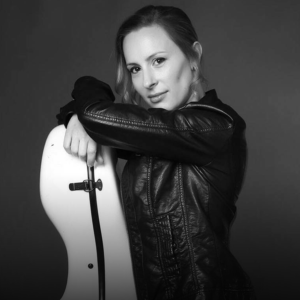About this speaker:
Award-winning cellist Elisabeth Wiklander worked in The Netherlands Philharmonic Orchestra before accepting her current position in The London Philharmonic Orchestra. Since 2015 she is connecting to audiences not only as a musician but also as an autistic Neurodiversity Advocate giving presentations on international platforms and to companies such as PVH corp. and The Southbank Centre in London. She is a Cultural Ambassador for The National Autistic Society, involved in research- and consultation projects in the EU and the US. Media appearances include a TEDx talk, The Daily Politics Show (BBC live), programs for Swedish Television and recording soundtracks for the award-winning autism documentary “The Reason I Jump”.
About this leqture:
Innovative thinking doesn’t dwell within the comfort of “normal”. What is normal? We are starting to unravel how common it is to be cognitively different. Learning about and including these differences in our DEI efforts unlocks powerful potential and skillful contributions. Explore neurodiversity through Elisabeth Wiklander whose talk will give a window into her life as an autistic. What are the challenges hidden underneath a successful surface and how can the workplace become an ally to the neurodivergent workforce? Neurodiversity is more than a market buzzword, it highlights human rights issues with a paradigm that will play a crucial part in our pursuit of societal goals, minimizing injustices, reaching greater inclusion and extracting maximum benefits out of human talent.
Plan a meeting
Book a time to chat
Book a timeslot to chat with Micha about how Leqture can help you engage, educate and inspire your talents and leaders through live, online learning sessions held by global experts.
